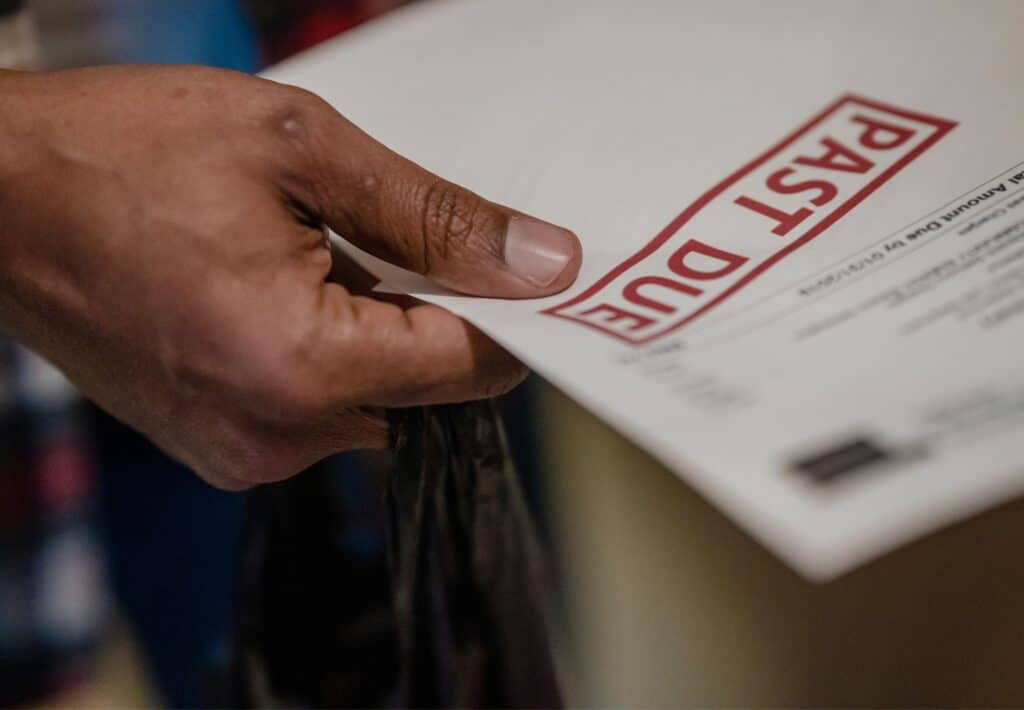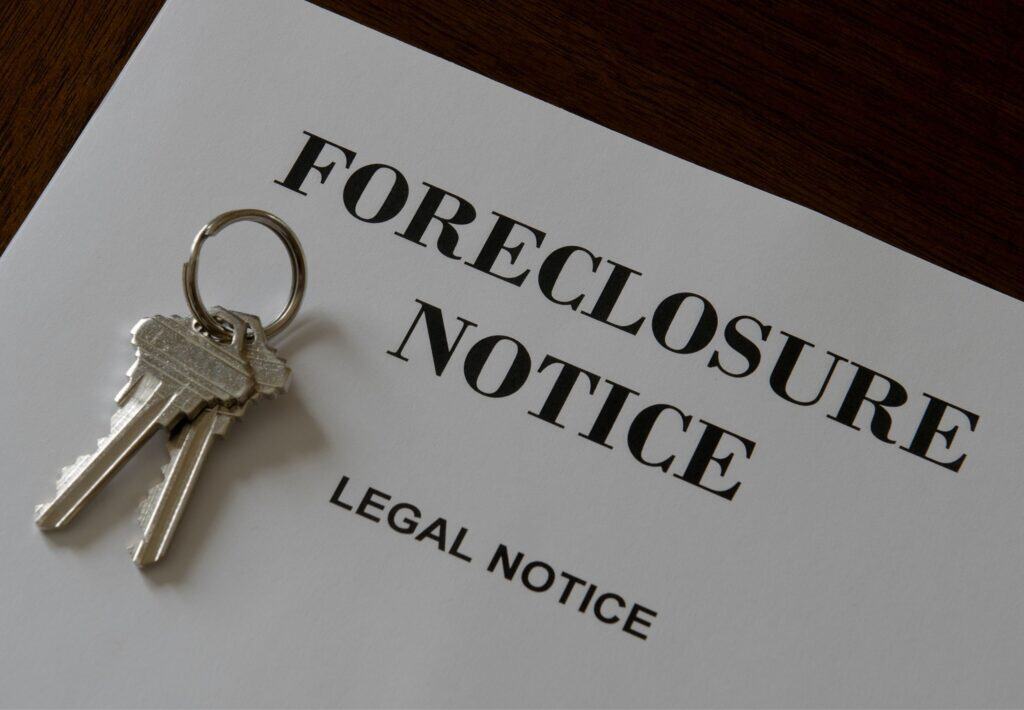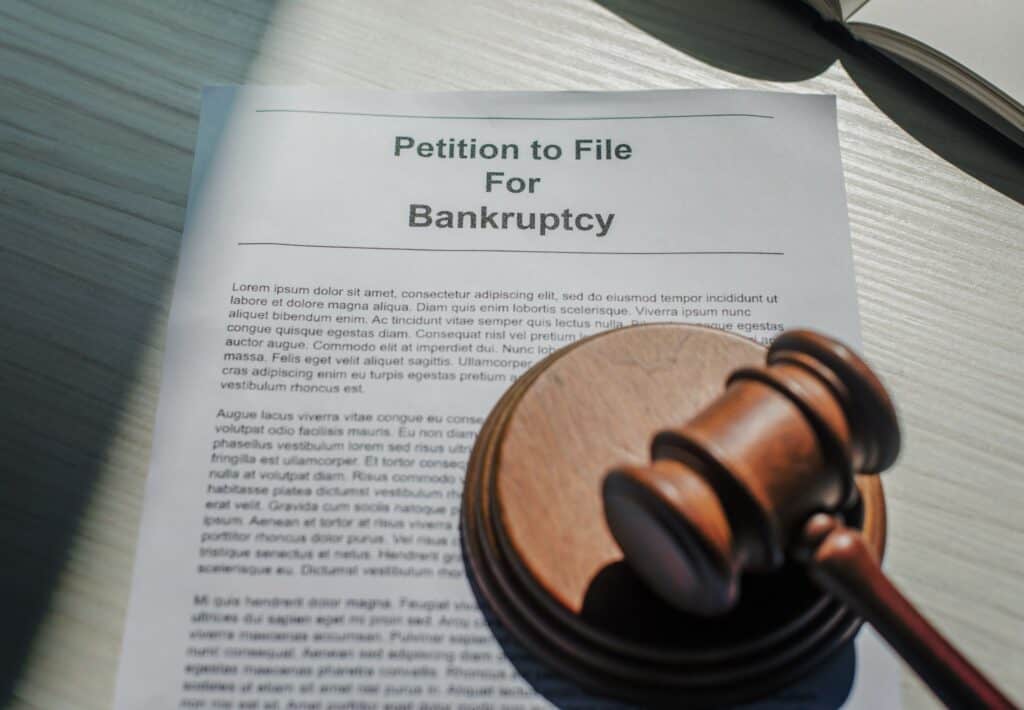Stop Foreclosure on Your Georgia Home – Proven Strategies
Facing foreclosure? Learn your options to keep your home and prevent the bank from taking it.
Get Your Fair & Honest All-Cash Offer Today! No Obligations!
We Buy Houses In Any Conditions
Analysis of the User's State of Mind
You’re reading this because you’re facing one of the most stressful situations a homeowner can experience—foreclosure. Maybe you’ve missed a few mortgage payments, and now you’ve received a Notice of Default. The letters, the calls from the bank, and the uncertainty of what comes next—it’s overwhelming.
The stress of financial distress can feel overwhelming when you’re facing foreclosure. You may have been making on-time payments until a crisis hit your household. A sudden job loss can quickly turn a stable mortgage situation into a foreclosure threat.
You’re not just worried about losing your home; you’re also thinking about the long-term financial and emotional toll. How will this affect your credit? Can you rebuild after foreclosure? Are there other options to stop the process before it’s too late?
Right now, you need clear, actionable advice to regain control of your situation. Whether you’re looking to negotiate with the bank, explore alternatives, or sell your house quickly to avoid foreclosure, this blog is here to guide you. We’ll cover everything, including the pros and cons of your options, and why selling your house for cash might be the best solution.
Sell Your House Fast in Any Situation
Understanding the Foreclosure Process

What Happens When You Miss Payments?
Foreclosure can happen quickly because it’s a non-judicial foreclosure state. This means the bank doesn’t need court approval to repossess your home. The process begins when you miss just one or two payments, although most lenders will wait until you’re at least 90 days delinquent before taking action.
Your mortgage company typically begins the foreclosure process after multiple missed payments. Understanding the terms of your mortgage loan is crucial when fighting to keep your home. Your loan servicer is often your primary contact throughout the foreclosure process.
The pre-foreclosure period offers your best opportunity to resolve the situation. The entire legal process from first missed payment to foreclosure can take as little as 90 days.
The first formal step is the Notice of Default, which informs you of your overdue payments and the risk of foreclosure. Once this notice is sent, the lender can schedule a foreclosure auction within 30 days.

What is a Foreclosure Notice of Default?
The Notice of Default is a formal document sent by the lender to inform you that your mortgage is in arrears. This document essentially serves as a warning that unless you bring the account current, the bank will begin foreclosure proceedings. The notice will typically detail how much you owe, including any late fees and costs, and the deadline by which the lender expects payment. Once this notice is issued, you may only have a short period to act before the foreclosure process advances.
Learn more about the Foreclosure Notice of Default in our comprehensive guide: Foreclosure Notice of Default in GA – What Is It?

The Financial Fallout of Foreclosure
Foreclosure doesn’t just mean losing your house—it also affects your financial future. A foreclosure stays on your credit report for seven years and can lower your credit score by 200-300 points. This makes it harder to secure loans, rent a home, or even get certain jobs.
If the foreclosure sale doesn’t cover your mortgage balance, you may also face a deficiency judgment, where the bank can sue you for the remaining balance.
Want to dive deeper into the foreclosure process? Check out our Understanding The Foreclosure Process in Valdosta GA for more details on laws and timelines.

Why Timeline is a Problem
Foreclosures can happen quickly. For homeowners, this means there’s very little time to act. In some states, foreclosure can take over a year, giving you ample opportunity to explore alternatives. But in other places, you may only have a few weeks before your house is auctioned.
Foreclosure laws are particularly challenging for homeowners because of the speed of the process. There are states that require judicial foreclosure, but in others, non-judicial process moves much faster. Many homeowners are caught off guard by how quickly they can lose their homes.
Loan Modification: A Possible Lifeline
What is a Loan Modification?
A loan modification involves renegotiating the terms of your mortgage to make payments more affordable. This could include lowering the interest rate, extending the loan term, or rolling missed payments into the loan balance. It’s designed to help struggling homeowners stay in their homes.
Your mortgage lender will evaluate your application based on your income and expenses. Having enough money for a sustainable payment plan is essential for approval. The modification addresses various financial aspects of your loan to create a viable solution.
The Upside of Loan Modification
Lower Monthly Payments: By adjusting the loan terms, you could reduce your monthly payment by 20% or more.
- Avoid Foreclosure: If approved, a loan modification halts the foreclosure process.
- Preserve Home Equity: Staying in your home allows you to retain any equity you’ve built.
The Downside of Loan Modification
- Approval Isn’t Guaranteed: Lenders require proof of financial hardship, including detailed documentation like tax returns, pay stubs, and bank accounts statements.
- Time-Consuming: The approval process can take 60-90 days, which might not be fast enough if your foreclosure date is near.
- Temporary Relief: If your financial situation doesn’t improve, you could end up defaulting again, even if you resume making on-time payments initially.
Example
Consider this scenario: Sarah in Atlanta fell behind on her $1,800 monthly mortgage after losing her job. She applied for a loan modification and reduced her payments to $1,400. While this gave her temporary relief, she struggled to keep up when unexpected medical bills arose.
To explore alternative solutions, read our guide on Foreclosure in Hephzibah GA for insights on other ways to save your home.
How to Avoid Foreclosure in Certain Local Areas
Avoiding foreclosure may require exploring local options specific to your situation. One key step is to ensure you’re in communication with your lender early on, which can lead to options like loan modification or forbearance agreements. Another strategy might be a short sale if you owe more than your home is worth. Understanding the foreclosure timeline will also help you prepare and act fast. The sooner you know your options, the better chance you have at saving your home from foreclosure.
Check out our in-depth guide on How to Avoid Foreclosure in Martinez GA to discover more local-specific strategies for homeowners facing foreclosure.
How Bankruptcy Stops Foreclosure
Bankruptcy: A Last-Resort Option
When facing foreclosure, filing for bankruptcy can provide a temporary lifeline by halting the process immediately. Once you file bankruptcy, an automatic stay goes into effect, stopping the bank from taking further action to foreclose on your home. If you file for Chapter 13 bankruptcy, you may be able to create a repayment plan that allows you to catch up on your missed mortgage payments over the next three to five years.
Filing for bankruptcy can halt debt collection activities immediately through an automatic stay. Consider consulting with a foreclosure attorney who specializes in bankruptcy options.
Before committing to bankruptcy, learn about other strategies in our What is a Pre-Foreclosure in Atlanta? article.
The Pros of Bankruptcy
- Immediate Relief: One of the biggest advantages of filing for bankruptcy is the immediate relief it provides. The automatic stay stops foreclosure, giving you the time to explore other options or get back on track with your payments.
- Structured Repayment: Under Chapter 13, you can restructure your debts and work out a repayment plan, often at a lower monthly cost, allowing you to keep your home.
- Additional Protections: Bankruptcy doesn’t just stop foreclosure. It may also discharge or reduce other debts, such as credit cards or medical bills, which can free up funds to help you meet your mortgage obligations.
The Cons of Bankruptcy
- High Costs: Filing for bankruptcy can be expensive. With attorney fees and court costs, it may cost you $3,000 to $4,000 or more, which can be a significant financial burden for homeowners already struggling.
- Credit Damage: Bankruptcy can remain on your credit report for up to 10 years, severely affecting your credit history and ability to secure loans or credit.
- Risk of Failure: Nearly half of Chapter 13 bankruptcy plans fail, meaning that homeowners who hope to catch up on their payments may find themselves facing foreclosure again after the plan is dismissed.
- Asset Scrutiny: The court may examine your bank accounts and assets during the bankruptcy process.
- Debt Complications: Bankruptcy can help when you owe money on multiple debts beyond just your mortgage.
Selling Your House for Cash: The Fastest Solution
Why a Cash Sale Works
If you’re facing the pressure of an impending foreclosure or need to sell your home quickly, a cash sale offers one of the fastest and most straightforward solutions. Many homeowners choose to sell my house fast before foreclosure to protect their credit score. Cash buyers specialize in helping homeowners avoid foreclosure by purchasing properties directly, often closing deals in as little as 7 days. This speed can be crucial when time is running out.
The selling process with a cash buyer is straightforward and requires minimal paperwork. Unlike a traditional home sale, cash purchases don’t require lengthy inspections or appraisals. Real estate investors specialize in purchasing homes facing foreclosure situations.

Benefits of Selling for Cash
Speed
With no need for bank approvals or long appraisal processes, a cash sale can close much quicker than a traditional sale.
As-Is Sale
You won’t need to spend money on costly repairs or renovations. Cash buyers purchase homes as-is, saving you both time and money.
Immediate Debt Relief
Selling your home for cash can provide the means to pay off your mortgage and avoid the long-term consequences of foreclosure, such as damaged credit.
Market Bypass
Cash sales bypass the multiple listing service entirely, saving time and maintaining privacy.
Equity Preservation
Homeowners with significant equity often benefit most from selling before foreclosure. Knowing how much equity you have helps determine if selling is your best option.
Financial Relief
Once your house sold to a cash buyer, you can quickly pay off your mortgage debt. The sale proceeds from a cash transaction can help you start fresh without foreclosure damage.
Lower Costs
Cash sales typically have much lower selling fees than traditional real estate transactions. You’ll have less stress about covering closing costs as they’re often paid by the buyer.
Fair Pricing
Cash buyers will make an offer based on your home’s fair market value, minus repair costs. A fair asking price is critical even in urgent sale situations.

Real-Life Example
Consider the story of John, who was facing foreclosure after losing his job. With a mortgage balance of $150,000, John’s home needed $10,000 in repairs to be market-ready. A cash buyer offered him $160,000 for the property, allowing John to pay off the mortgage, cover his debts, and still walk away with $10,000. This fair cash offer allowed him to avoid foreclosure and start fresh.
In situations like John’s, selling for cash can provide immediate relief and protect your financial future. With a cash sale, there’s less concern about the remaining balance on your mortgage.
Learn more about the advantages of selling for cash in our Sell My Atlanta GA House in Foreclosure? guide.
Short Sale vs. Foreclosure: What's the Difference?
A short sale involves selling your home for less than you owe, with the lender’s approval. It’s often seen as a way to avoid foreclosure, but it’s not without challenges. The short sale process typically takes 3-6 months to complete with lender approval. A short sale means selling your home for less than what you owe on your mortgage.
Why Consider a Short Sale?
- Less Credit Impact: A short sale reduces your credit score less than a foreclosure.
- No Foreclosure Stigma: You avoid having “foreclosure” on your credit report.
- Professional Help: Working with a real estate agent can help navigate the complex short sale negotiations.
- Legal Protection: Having a real estate attorney review your short sale documents can protect your interests.
- Timing Advantage: Pre-foreclosure is often the ideal time to pursue a short sale option.
The Downsides of Short Sales
- Time-Consuming: The lender’s approval process can take months.
- No Cash Back: Unlike selling for cash, a short sale doesn’t leave you with any equity.
For more information, check out our comparison of Short Sale vs. Foreclosure – What’s the Difference? to weigh your options.
Conclusion: Is Selling Your Georgia House for Cash the Best Option?
Foreclosure is a financial and emotional burden, but you have options. Loan modifications and bankruptcy can work in some cases, but they’re time-consuming, expensive, and not guaranteed. Short sales take months and often leave homeowners with no equity.
If you’re looking for a fast, hassle-free way to stop foreclosure, selling your house for cash may be the best solution. Selling your house quickly for cash offers immediate relief from looming foreclosure pressure. Working with a cash buyer provides several benefits that traditional sales cannot match. It allows you to avoid foreclosure, protect your credit, and move forward with peace of mind.
At P&D Cash Offer, we specialize in helping homeowners like you avoid foreclosure by providing a fair cash offer and closing in as little as 7 days. Reach out today for a no-obligation cash offer and find out how we can help you move forward without the burden of foreclosure.
Convenient Next-Day Cash Offer
Skip time-consuming phone calls or long list of preparations. Instead request a free cash offer for a quick, seamless and fair selling process.
Next Steps
Sell Your House Fast In 3 Simple
It is our responsibility as a cash buyer company in Atlanta, Georgia to make a fair & all-cash offer as fast as possible, here’s how our cash buying process makes it possible:
Step 1: Contact Us!
Share your property address, and we’ll give a fair cash offer. We’ll start working on a custom offer based on its current value. Text or call us today at (678) 990-9300. We will answer any questions.
Step 2: Get Your Cash Offer
No hidden fees — just a fast cash offer in 24 hours. We want you to have all the facts and answer your questions quickly before we buy your property.
Step 3: Choose Your Closing Date
Pick your closing date and walk away with more money. Our fast cash process has helped many people like you, and we can help you, too!
Reviews
What Our Customers Are Saying
And proof that we can deliver on our excellent customer service
Posted onTrustindex verifies that the original source of the review is Google. Posted onTrustindex verifies that the original source of the review is Google. If I could give negative 0 stars, I would. Awful. A TOTAL SCAM! Dasean charges almost 10k if you cancel your “contract”. Then, if his crew moves anything for you, they will intentionally damage your belongings without any remorse, and charge you 1K for moving a few pieces of furniture. This is the WORST company and they’re all dishonest. Please save yourself the trouble.the last 2 pics are what my vintage cabinet DID look like.Posted onTrustindex verifies that the original source of the review is Google. My experience was easy and everything was explained so all Right had to do was pack and relocate.
Sell Your House In Atlanta, GA Fast & Get Your All-Cash Offer Today
Our cash home buyers in Atlanta, Georgia are ready to make you a fair cash offer today.


